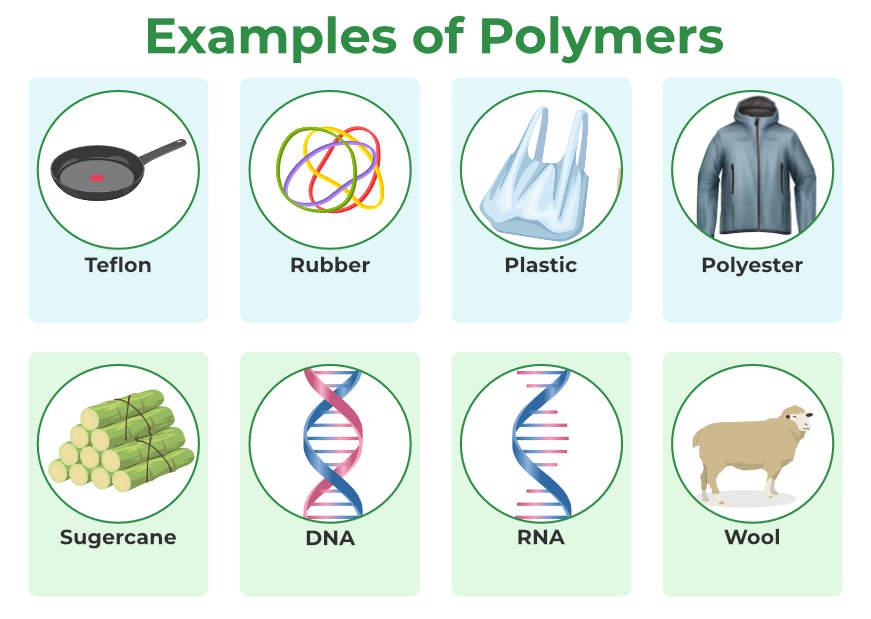Comprehending Polymers: The Science Behind Versatile Products
Comprehending Polymers: The Science Behind Versatile Products
Blog Article
Optimizing the Prospective of Polymers: Discover the Multifaceted Benefits and Practical Uses
The diverse benefits and practical uses of polymers continue to develop, supplying innovative remedies to complicated obstacles. By exploring exactly how polymers can improve item toughness, drive sustainability efforts, transform health care options, and pave the way for future technological advancements, we can reveal a globe of possibilities waiting to be utilized.
Importance of Polymers in Modern Industries
Polymers play an essential function in modern-day sectors, acting as versatile products that drive development and effectiveness across a wide array of sectors. These complex particles, composed of duplicated subunits, have reinvented markets such as automobile, aerospace, electronics, medical care, and extra. In the automotive industry, polymers have made it possible for the growth of lightweight yet resilient elements, boosting fuel efficiency and general efficiency. Aerospace markets count on polymers for their high strength-to-weight ratio, vital for airplane and spacecraft construction. The electronic devices industry take advantage of the insulating homes of polymers, important for producing motherboard and digital tools (Polymers). Additionally, polymers are thoroughly made use of in the healthcare industry for medication shipment systems, clinical devices, and biocompatible materials. Their flexibility, sturdiness, and cost-effectiveness make polymers crucial in modern-day production procedures, cultivating improvements and driving development in various sectors worldwide. Embracing the possibility of polymers is essential to unlocking further technologies and dealing with the advancing needs these days's commercial landscape.
Enhancing Item Longevity With Polymers
With a focus on longevity and resilience, integrating sophisticated polymer technologies into item design has become a keystone of improving sturdiness in modern-day production processes. Polymers supply a vast array of properties that add to the general sturdiness of products. One crucial benefit is their resistance to deterioration, chemicals, and weathering, making them excellent for use in various sectors where direct exposure to harsh problems prevails.
Moreover, polymers can be customized to meet certain longevity demands, permitting producers to personalize items according to their intended use and expected life-span. By including polymers into product elements, manufacturers can improve toughness and influence resistance, decreasing the probability of damage or wear over time.
Furthermore, polymers are lightweight yet tough, offering toughness without including unnecessary weight to items. This characteristic is particularly beneficial in sectors such as aerospace and automobile, where light-weight products are necessary for boosting gas efficiency and general performance.
Sustainability Innovations Through Polymer Innovation
In the world of modern manufacturing and item design, the innovative application of polymers is driving considerable developments in sustainability techniques. Polymer development plays a critical duty in improving sustainability by using solutions that lower environmental influence throughout different markets. One crucial aspect where polymers excel is in enabling the advancement of light-weight yet sturdy products that add to fuel efficiency in go to website transport and minimize general energy consumption. In addition, the recyclability and biodegradability of particular polymers even more promote lasting techniques by reducing waste and air pollution.
Additionally, developments in polymer innovation have led to the creation of bio-based and eco-friendly polymers, stemmed from all-natural resources such as plants, that provide an even more lasting option to traditional petroleum-based plastics. These green polymers not just help lower reliance on nonrenewable fuel sources but also lower greenhouse gas exhausts during production. By incorporating these ingenious polymers right into manufacturing processes, companies can lower their ecological impact and relocate towards even more sustainable practices, lining up with worldwide efforts to deal with climate modification and promote a circular economy.
Polymers in Medical Care: Revolutionizing Medical Solutions
:max_bytes(150000):strip_icc()/three-dimensional-model-of-polyvinyl-chloride-165874889-5c425ea7c9e77c000188be6d.jpg)
One of the key areas where polymers are making considerable strides is in the growth of i thought about this targeted drug delivery systems. By encapsulating medicines within polymeric nanoparticles or micelles, scientists can boost medicine stability, enhance bioavailability, and enable controlled release, causing a lot more effective treatment regimens with lowered adverse effects.
Additionally, polymers are crucial in the field of regenerative medicine, where they are used to create scaffolds that mimic the extracellular matrix, giving assistance for cell growth and cells regeneration. This technology holds immense guarantee for fixing harmed organs, promoting injury recovery, and advancing customized medicine methods.
Basically, the integration of polymers in medical care is driving advancement, improving treatment effectiveness, and ultimately improving client outcomes in methods previously thought unattainable.
Future Applications and Innovations in Polymer Technology
Progressing at the leading edge of clinical discovery, polymer modern technology proceeds to lead the means for groundbreaking applications and innovations forming varied sectors. Furthermore, polymer nanocomposites are boosting the mechanical and thermal residential or commercial properties of products, leading to more powerful and lighter elements in aerospace and auto sectors. Looking in advance, researchers are exploring the capacity of shape-memory polymers for applications in robotics and biomedical tools, where materials that can "remember" and go back to their original shapes use exciting possibilities for innovation.
Conclusion

Report this page